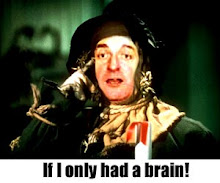A New Sci-Fi Chapter...or Two
'Wasp' at wikipedia.org
Last Thursday I dropped into Chapters just as they were putting out a batch of those yellow Victor Gollancz classic sci-fi books. In the past they had them reduced to €5, but now they were €2 a pop. Needless to say I had a large armload within a minute. The manager there let out an oath as I walked by - he'd just ordered them out - and took them from me with a "That's a heavy armload. I'll leave them at the till." He did, and I bought them very soon after.
In my enthusiasm I failed to note that I had already read Michael Bishop's time-travelish 'No Enemy But Time' around four years back (that same edition is locked away in those book boxes at home). As I recall, it's well-written and intriguing, concerning a project to send a modern man back to our pre-modern ancestors on the African grasslands, or rather a peculiar recreation of that epoch (it has some slight similarities to Christopher Priest's forward-looking, but also ersatz, Wessex in "A Dream of Wessex"). A good novel, but not one that particularly rocks my boat.
Anyway soon after getting home I started on Eric Frank Russell's 'Wasp'. It's an easy read and I had it read by Friday.
Apparently regarded by many as Russell's best (Terry Pratchett gushes praise on the cover), 'Wasp' breezes along with its tale of an agent provocateur sent to an enemy alien empire to stir up discontent and mayhem. (The title comes from an illustrative anecdote wherein a tiny wasp causes a driver to crash his car killing four occupants.) Remembering that the novel was written in 1957 helps. It is transparently a tale of the Cold War, with the Sirian aliens a stand-in for Commies of all races. The 'alien' civilisation is so similar to terrestrial culture, or rather Western culture, as to beg the question why Russell gave it an alien setting at all.
I have read some right-wing sci-fi in the past, particularly by the likes of Heinlein and Poul Anderson, so I know how bad this kind of thing can get. To Russell's credit, he stays away from the politics for the most part and keeps resolutely to the dirty tricks perpetrated by hero, James Lowry. Russell fought in WW2, so I suppose he is familiar with some of the ploys used in a propaganda war, but there is little here for the modern terrorist. Starting off with treasonous stickers, Mowry progresses to easy assassinations, threats, underworld shenanigans and letter bombs. His progress is so pat, with everything going our hero's way from the outset, that it's hard to take the whole thing too seriously. But then this is meant to be at least somewhat comic. Wich might explain why all the characters are two-dimensional, including Mowry. With little background (except that he grew up on the Sirian home planet of Directa), he turns from an everyday schmo to super-agent after attending 'College' for eight weeks. With personalities this thin, cough and you'll lose them.
Even given the political subtext, Russell is not all American apple pie (actually he was British). Ultimately he is cynical about all authority, so even the so-called 'good guys' come off as callous manipulators. But even here the cynicism is delivered in such an offhand manner, that the reader will not end the book wanting to start a revolution. Far from it.
'Wasp' passed the time, but little else.
Labels: Books, Christopher Priest, Eric Frank Russell, Michael Bishop, Science Fiction


0 Comments:
Post a Comment
<< Home